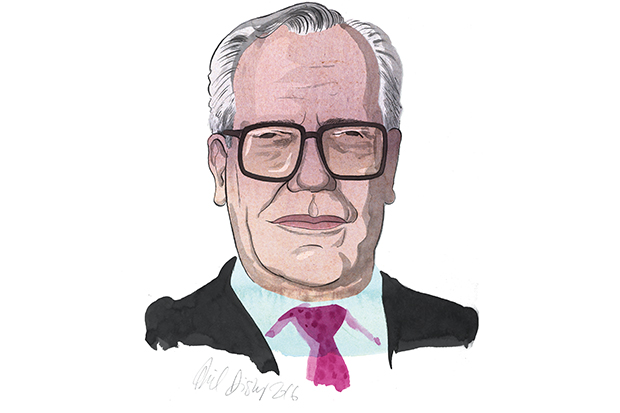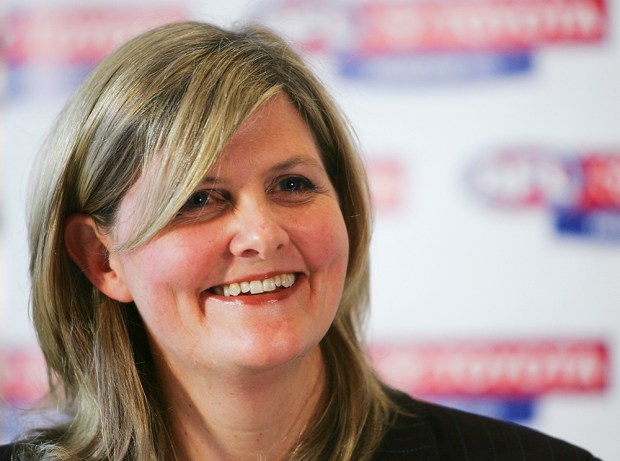‘There was never a consensus among economists that Britain should stay in the European Union,’ insists Professor Patrick Minford. ‘That was always rubbish.’
During the heat of the referendum campaign, Chancellor George Osborne asserted it was ‘economically illiterate’ to back Leave. ‘It’s Osborne himself who is economically illiterate,’ Minford shot back.
Three months on from the UK’s EU vote, Minford has reason to feel pleased with himself. Economists for Brexit — the campaign group he hurriedly founded on a shoestring — is credited with helping to swing the result.
Yet Minford is anxious, in part about the dismal behaviour of his fellow scientists. ‘I was deeply shocked by the economics profession during the campaign,’ he says. ‘Many deliberately rigged their assumptions to generate lurid predications of economic collapse — it was outrageous.’
Minford is adamant that Prime Minister May, on the eve of Conservative party conference, ‘must get over this fixation of trying to strike a deal that won’t happen’ with the rest of the EU. ‘There is no half-in-half-out compromise — one or more members will always object,’ he argues. ‘So we should stop this talk of extended negotiation and just leave as soon as we can.’
Minford has always dealt in stark statements. He rose to prominence in the early 1980s when, as professor of applied economics at Liverpool University, he led a highly influential research group promoting monetarism — the then outlandish economic creed of tight money, balanced budgets and low inflation. When Chancellor Geoffrey Howe delivered his 1981 ‘monetarist budget’ — countering ‘Keynesian’ conventional wisdom by slashing borrowing — 364 leading economists famously objected in a letter to the Times.
Almost alone among economists, Minford backed Howe, dismissing the letter as a ‘dangerous and dishonest game’. As inflation receded and recovery took hold, the unfashionable ‘Liverpool school’ was proved right — and Minford became a trusted advisor to Margaret Thatcher. Despite his reputation as a solid forecaster, and a stellar academic publishing record, the snooty economics establishment has never forgiven him.
Now 73 and teaching applied economics at Cardiff University, Minford had disappeared from the national spotlight. ‘In 2005, I wrote a book on why we should leave the EU, updating it last year — so I felt I’d done my bit,’ he says. ‘But when I saw Project Fear, with the Treasury spouting this constant stream of propaganda, I thought “Crikey, this is my country, I need to act.”’
His eight-strong campaign group — including respected economists such as Roger Bootle of Capital Economics and Gerard Lyons, economic advisor to Boris Johnson when he was London mayor — tore into the official Brexit forecasts.
‘The Treasury analysis was deeply flawed,’ says Minford. ‘They used a so-called “gravity model”, emphasising trade with nations you’re close to and already trading with, so overstating the future importance of the EU,’ he explains. ‘They th
The post Brexit’s philosopher king appeared first on The Spectator.
Got something to add? Join the discussion and comment below.
Get 10 issues for just $10
Subscribe to The Spectator Australia today for the next 10 magazine issues, plus full online access, for just $10.














Comments
Don't miss out
Join the conversation with other Spectator Australia readers. Subscribe to leave a comment.
SUBSCRIBEAlready a subscriber? Log in